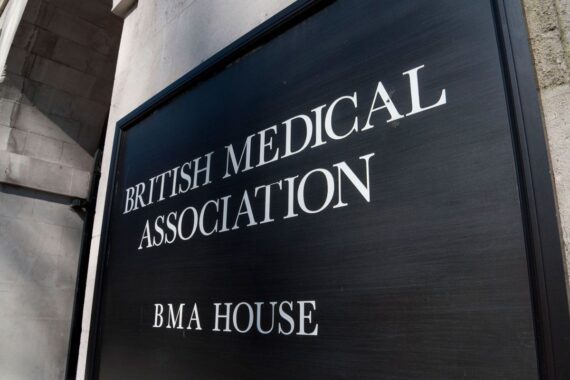Dear Sir,
I read with some concern your recent reporting regarding the handling of code of conduct behaviour complaints by the BMA and my own independent recommendations to the organisation. I write to correct some misrepresentations or misunderstandings in your reports.
As an independent external advisor, I have supported the BMA regarding its approach to complaints since 2018. In that time, I have widely consulted members and staff across the BMA, listening to their feedback and suggestions. All organisations require effective systems to manage disputes that arise and the BMA’s General Practice Committee in England (GPCE) is no exception to that. It is wholly inaccurate, however, to suggest that the organisation’s resolution process is contributing to the very issues it is set up to resolve. I am certain that it is and will continue to be a crucial part of the solution.
In your reports you reference the use of law firms to undertake investigations with the suggestion that ‘complaints are being investigated by solicitors “on a whim”‘, and members subjected to ‘Lawyer-led investigations’.
This gives a very false picture of the reality of the BMA’s processes. Yes, they are independently applied, outside of the BMA, and this is an important principle. The BMA uses qualified individuals with investigative skills to look into complaints raised under its resolution process. In reality these investigators are made up of lawyers and non-lawyers from a number of different organisations who do not act in a legal capacity nor provide legal advice. Many professional services firms as well as legal firms provide this type of investigative service as part of their overall service offering. In addition to being independent, it is a cost-effective service for the many organisations that use them.
The BMA’s use of these professional services is certainly not unusual, and in many respects reflects best practice.
Unfortunately, the sources you cite regarding my findings in the report are also inaccurate. You report that I said that the complaints process was being used to ‘stifle debate, disrupt elections and settle old scores’. This is not the case and has been taken out of context. This was not a finding in my work, but a perception from some members I interviewed during my review. This perception related to the previous system which saw complaints investigated in-house and which I recommended should be replaced with an external, independent investigations process. A recommendation the BMA has implemented with my guidance and support.
Of course, every change brings uncertainty, but I found that members feel more able to contribute to meetings and online and are more likely to believe their views would be respected. They tell me the quality of debate has improved in that there was greater contribution, more varied perspectives and debate was focused on issues rather than people. The organisation’s behaviour principles are making a positive difference.
Members feel more confident in challenging poor behaviours, knowing there is support from the BMA. There are also a number of ways now to raise concerns including a speak up guardian and training in place to support members and staff to do so safely.
For the record, I would also point that, although I qualified as a barrister, I do not practice, and am not a QC.
Sent on behalf of Orla Tierney, people and policy consultant, who headed a review into the BMA’s complaints procedures in 2019
Editor’s response
From our extensive investigation, many GPC England members and associates told us that they didn’t feel the new complaints procedures were helping tackle the issues that have been identified around a ‘toxic culture’ and that complaints are still being used as a way to ‘stifle debate’.
As much as we would have liked to have quoted direct from Orla Tierney’s report, the BMA has not made this public, or released the full findings to BMA Council. We did see a council board paper that said: ‘There was a… perception that some complaints were raised to stifle debate, disrupt elections and to settle old scores’. We apologise that we presented this as a finding of the report.
We understand that all 11 complaints we are aware of were led by law firms, although appreciate this does not necessarily mean they were lawyer led.
We apologise for getting Orla Tierney’s title wrong, and we have changed this online.
Pulse October survey
Take our July 2025 survey to potentially win £1.000 worth of tokens













